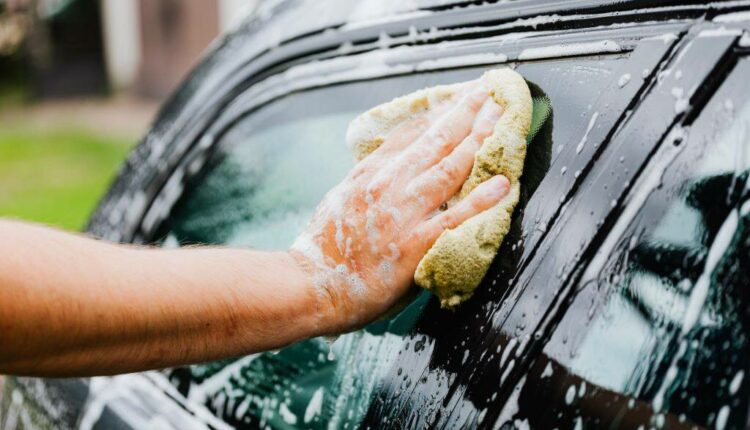Viral Car Cleaning Hacks That Can Ruin Your Car
Motorists are being warned of viral cleaning hacks which could cause damage to their cars. Car insurance comparison experts have highlighted the seven household items motorists should avoid using on their vehicles.
With cost-of-living challenges and soaring fuel prices, many car owners are turning to TikTok for cheap car maintenance solutions.
Many DIY car cleaning videos on social media platforms offer quick and cost-effective hacks to remove tricky stains and dirt.
Baking soda, vinegar and olive oil are a few examples of household essentials that social media users praise as miracle fixes for sprucing up cars.
While these hacks can offer short-term solutions, it’s crucial to think twice before jumping on social media trends that can potentially compromise the health and longevity of the vehicle.
Greg Wilson, CEO of Quotezone.co.uk, said: “While the viral car cleaning hacks may appear tempting for quick fixes, some of them can lead to unwanted consequences, causing lasting damage to your vehicle.
“It’s important to remember that these social media videos are often not made by experts, who may not know that their seemingly helpful hacks can cause more harm than good.
“It’s essential to prioritise the health and longevity of your car by relying on proven, manufacturer-approved methods and specialist cleaning products.
“By using the correct products, you can avoid any additional damages, which could end up costing you less in the long run.”
The Team at Quotezone.co.uk Has Put Together a List of Seven Viral Car-Cleaning Hacks to Avoid:
-
Abstergent and Baking Soda
Social media users claim combining an abstergent and soda is an excellent solution for eliminating oil stains. However, abstergents are not effective cleaners, and the abrasive nature of baking soda poses a risk of causing additional damage to the vehicle. The combination could also leave a sticky residue, adding to the cleaning troubles rather than alleviating them.
-
Toothpaste
Quite a few car cleaning hacks revolve around toothpaste. Some videos recommend using it as a polishing compound, while others say it’s an effective solution for cleaning car mirrors. These videos don’t tell you that toothpaste can damage the car’s clear paint coat and even the paint under it. The same applies to mirrors, which the abrasive properties of toothpaste can scratch.
-
Vinegar and Baking Soda
Some videos suggest mixing vinegar and baking soda to create an effective all-purpose car cleaning solution. However, this mixture can be abrasive or corrosive, potentially leading to damage to both the interior and exterior of your car.
-
Olive Oil
Olive oil is claimed to be a versatile cleaning product that can be used for leather seats and the dashboard. Leather is a tricky material requiring a dedicated cleaning product instead of cooking oils, making the seats greasy and giving them an odd smell. While olive oil can be used for the dashboard, there are a lot of factors to consider, so it might be easier to opt for a specialist product.
-
Shaving Gel
Video circulating online suggests shaving foam to remove stains from car upholstery. However, regular use of shaving gel can result in additional stains, discolouration and even irreversible damage. This is due to the presence of mineral oils in the product.
-
Coconut Oil
Using coconut oil to clean plastic on cars may seem like a simple hack, but it is not the most suitable car cleaner and can cause more harm than good. While it may work temporarily, it could damage the car’s paint by harming the coat layer, resulting in a dull appearance or even minor scratches. This can make the paintwork more susceptible to rust, which could lead to expensive repairs.
-
Dish Soap
Dish soaps are designed to cut through grease and grime, and they do this by removing oils. This means they can strip away any protective wax and clear coat on your car’s paint, leaving it vulnerable.
UP IN NEWS
- UTV Off-Roading: Rent or Buy Your Vehicle?
- Lynk & Co Cyan Racing Crowned World Champions in Macau
- Dubai-Based On-Demand Tech Start-up Expands Its “Pay-Per-Minute” Driver Services to Abu Dhabi
- Seven Ways to Prevent Car Mould
- IDTechEx Discusses the Technology Trends Driving Sustainable Polymers for a Circular Economy
For all the latest automotive news, reports, and reviews, follow us on Twitter, like us on Facebook, subscribe to our YouTube page, and follow us on Instagram, which is updated daily.
Stay Ahead of the Curve
Unlock the World’s Leading Source of Automotive News and Analysis.
Autoscommunity.com provides innovative marketing and advertising solutions to support an advertiser’s specific campaign objectives.
Customised programs leverage the best of Autoscommunity.com. Please get in touch with our sales team today and see what our team can do for your custom advertising solutions.
-
Email: [email protected]
-
Please Read Our Privacy Policy
Why You Can Trust Autos Community
Our expert, award-winning staff selects the automotive-related news we cover and rigorously researches and tests our top picks.
Think Your Friends Would Be Interested? Share This








Comments are closed.